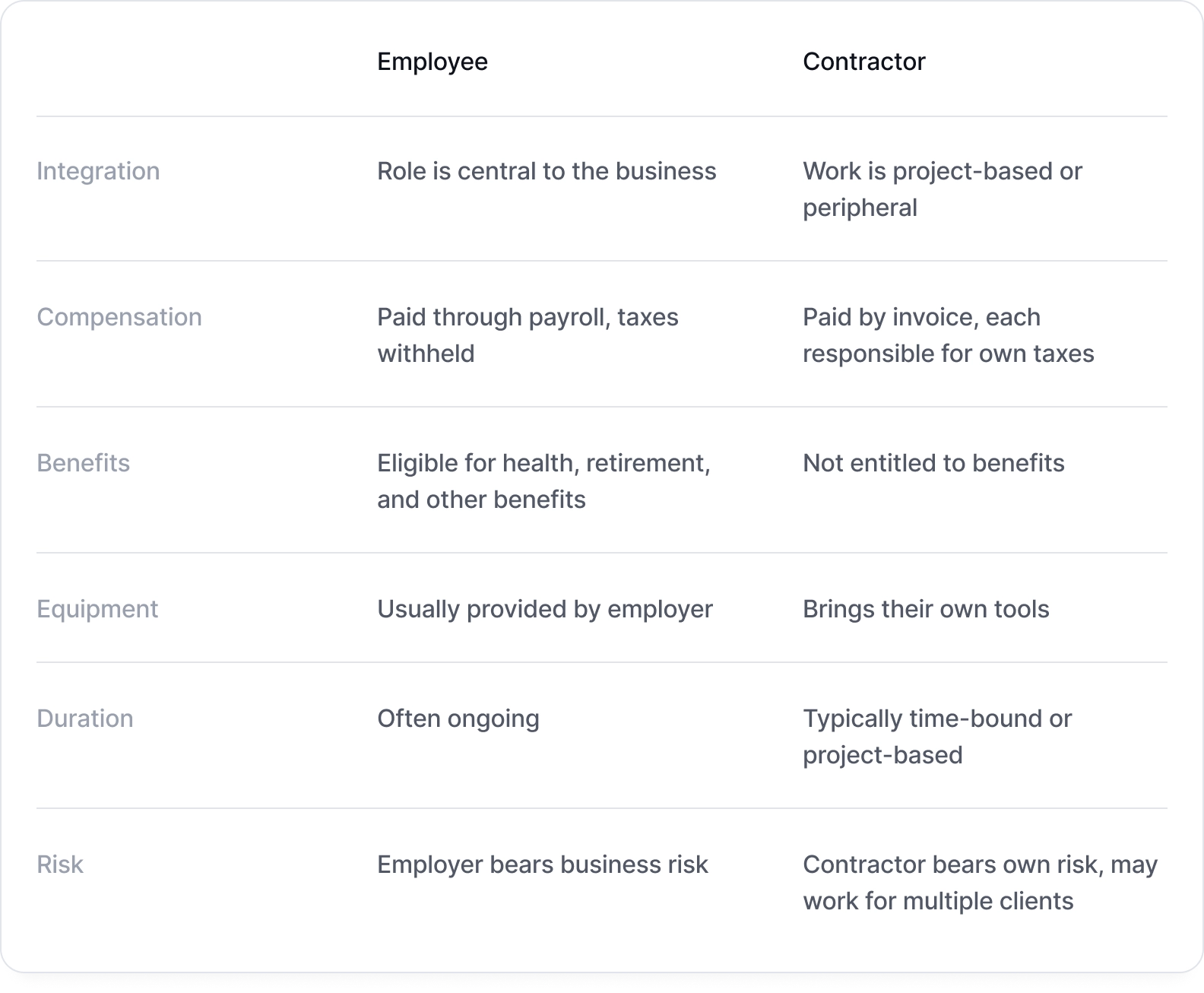
When a business starts to grow, founders need to decide how to structure new working relationships. One of the most important decisions is whether to bring people on as employees or contractors. At first glance, the difference may look minor since both contribute to moving the company forward. In practice, the choice has major implications for taxes, compliance, benefits, and team culture. Missteps in classification can lead to costly consequences, especially in states where labor protections are particularly strict.
The difference comes down to control, responsibility, and how the work relationship is structured. Employees are deeply integrated into your company, while contractors operate more independently. Understanding these distinctions helps you design relationships that are both compliant and practical. Here is a quick comparison of the main differences between employees and contractors:

Classification is not just a legal checkbox. It shapes your costs, liabilities, and even the trust your team has in you as a leader. Misclassification can:
For example, if a startup classifies a marketing professional as a contractor but requires them to work fixed hours in the office, the worker might later claim employee status. If successful, the company could be responsible for back pay, benefits, and penalties.
Some states take a stricter approach to labor protections. In particular, California uses the ABC Test, which allows a worker to be treated as a contractor only if:
This means if your software startup hires a software engineer, that person will almost always be considered an employee. By contrast, hiring a freelance designer for a one-off brand project is more likely to qualify as contractor work. Other states like Massachusetts and New Jersey also follow similar strict rules.
The choice often comes down to balancing flexibility vs. stability.
Choose an employee if:
Choose a contractor if:
Even with good intentions, startups often fall into predictable traps when classifying workers or managing agreements. These mistakes can cost time, money, and reputation. The list below highlights common pitfalls so you can avoid them when deciding between employees and contractors:
Deciding between an employee and a contractor is not just about cost. It’s the way your company grows. Employees bring stability and deeper integration into your mission. Contractors bring flexibility and specialized skills without long-term commitments.
Skala provides plain-language templates for both employment agreement and independent contractor agreement. These tools help you set clear expectations, comply with legal standards, and build strong, lasting relationships with your team.